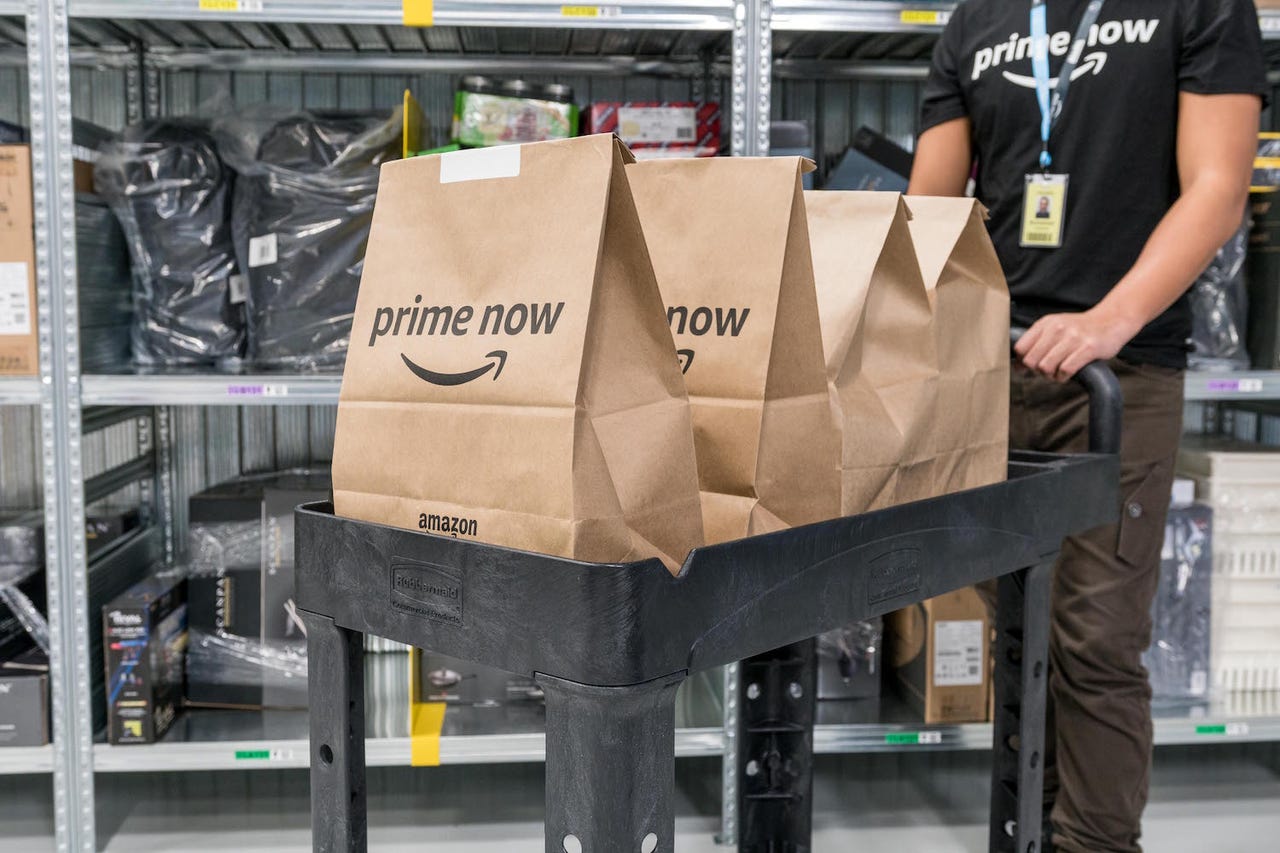Amazon Prime Now arrives late in competitive Singapore market


After months of speculation, Amazon has finally launched Prime Now in Singapore where it now operates a fulfilment facility, but analysts say it is late to a market that is highly competitive.
Amazon on Thursday officially unwrapped the two-hour delivery service for "tens of thousands" of items that include fresh produce, alcohol, toiletries, and home improvement, and from local as well as foreign brands such as Tiger Balm, L'Oreal, and Samsung.
Available to Amazon's Prime subscribers, the delivery service is free for orders of worth S$40 and above or S$5.99 for orders less that S$40), and at S$9.99 for deliveries within an hour. Deliveries are available every day between 10am and 10pm.
Currently available for a limited time to customers without a Prime membership, Amazon said the membership programme would "soon" be launched in Singapore with additional benefits for subscribers.
The service was first introduced in December 2014 and now was available in more than 50 cities across nine countries, including Tokyo, London, and New York. Singapore consumers would be able to download the app on Google Android and Apple iOS.
Amazon's Asia-Pacific director of Prime Now, Aarif Nakhooda, said the launch here marked the first time the service was introduced without an existing retail presence or fulfilment network.
It does, however, operate a fulfilment building and warehouse--located on an area spanning 100,000 square feet--to support the service locally.
Ivan Lim, site lead for the Prime Now facility in Singapore, said the centre was manned by "hundreds" of full-time as well as part-time employees in various roles, including technical positions such as analyst and operations and digital marketing.
"We use advanced techniques and algorithms to fulfil orders as quickly and efficiently as possible with processes such as random stow, batching, and machine learning," Lim said, adding that the team here constantly looked at ways to improve efficiencies such as optimising the number of deliveries in the driver's route.
Amazon would not reveal details of partnerships, including logistics and suppliers, it had established to support the service in Singapore or the timeframe on when it would increase the inventory of items.
Strong brand recognition, but late entrant in highly competitive market
Amazon's launch in Singapore reaffirmed the importance of Southeast Asia for digital commerce, but the US operator was a "late entrant" in a market that was hotly contested between regional and local e-commerce players, said Adrian Lee, Gartner's research director.
He noted that the local selection of Prime Now merchandise was significantly smaller than those available on its parent site. Describing it as a "cold start", Lee said: "They need to ramp that up quickly to match accessibility on their US or UK sites. With competitors like Lazada and Qoo10, Amazon still has work to do before they can be considered as doing well in Southeast Asia."
To do well, he said, Amazon would need to offer a differentiating customer experience.
Elaborating on competition with Alibaba, which acquired Lazada last year, the Gartner analyst said the Chinese e-commerce giant had made the first move into Southeast Asia with the acquisition.
"Amazon is now late to Asia and will have to work very hard to convince online shoppers to switch with a superior customer experience," Lee said.
His fellow researcher and Gartner's research director Sandy Shen, though, said it was "never too late to enter a new market", despite the strong competition from other players here including Lazada.
Shen noted that Amazon's innovation in products such as Echo could be its differentiator since no other e-commerce players had similar offerings.
While Amazon does include Singapore as a delivery destination for several products sold on its main site, it still does not ship its own range of devices such as Echo and Kindle to the city-state.
Shen said the US company enjoyed brand recognition in Singapore, which was the most mature e-commerce market in Southeast Asia in terms of user behaviour and infrastructure. And while other markets in the region could provide cheaper labour, she said success factors in e-commerce depended more on online shopping behaviour and the robustness of the country's infrastructure and supporting services, such as logistics and applications service providers.
Noting that Singapore was Amazon's regional commercial office, Lee added: "Singapore makes for a suitable testbed because of its smaller size, high smartphone penetration, and credit card ownership. If Amazon can't make it work here, it is going to struggle in the rest of Southeast Asia."
Traditional retailers, too, should be concerned, he said. "So long as e-commerce providers maintain a deep and broad merchandise portfolio with fast fulfilment deliveries, the brick-and-mortar stores will need to transform to attract customers with a compelling in-store experience to stay relevant."